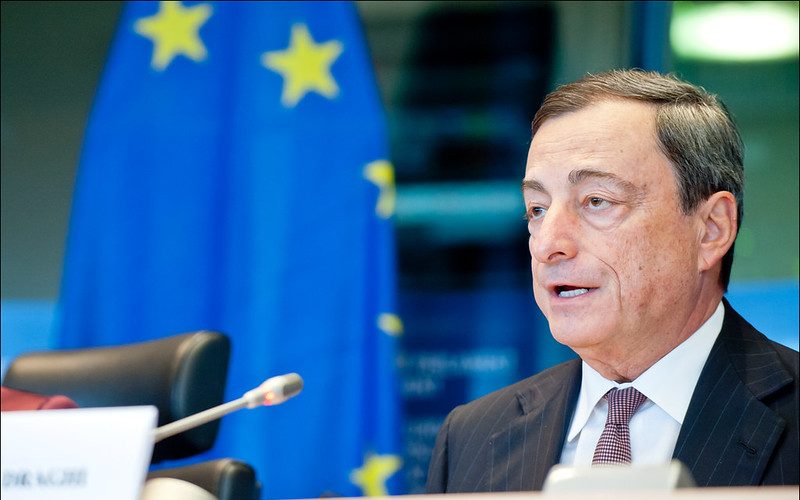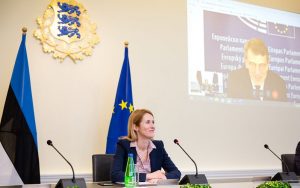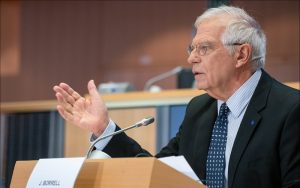In a short time, Prime Minister Mario Draghi cleared the chain of command from the previous government under Guiseppe Conte: the delegation to the Secret Services was entrusted to the Police Chief Franco Gabrielli, Fabrizio Curcio was appointed as Civil Protection Chief, and finally, Commissioner Domenico Arcuri, who managed the Covid-19 emergency to date, was replaced by Army General Francesco Paolo Figliuolo. This is consistent with the premises that accompanied the establishment of the new government, characterized by the central role of the Prime Minister and his collaborators and the two main objectives: reach herd immunity and reignite the Italian economy through the Next Generation EU investments. To do this, the former president of the ECB involved all main political forces, sharing roles equally within the government, but making sure that central positions for vaccination and investment planning were assigned to professionals not connected to politics.
The presence of politicians in the executive has only a preventive and facilitating function. Draghi wants to share the responsibilities of a possible failure and minimize the risk of insubordination and flight forward of the parties. Nevertheless, the division of roles teaches something, especially regarding the balance of power between the two main political forces: the “5 Star Movement (5SM)” and the “League”.
The 5 Star Movement is the great loser of the government crisis. They have lost control over the Prime Minister, the Ministry of Economic Development and the Ministry of Environment. Therefore, they saw the creation of the much-desired Ministry for Ecological Transition without being able to manage it personally.
The ecological transition plan (required to have access to European funds) was assigned to a physicist and entrepreneur, Roberto Cingolani, to ensure pragmatism and a friendly attitude to the needs of the industries. The reason behind 5SM’s loss of power is simple. Italy is eighth among the world economic powers and third in the European Union. It remains, despite all the problems, indispensable for the Eurozone, especially for the German supply chain.
The 5 Star Movement is the biggest party in parliament and its support was needed to legitimize the new government. However, its internal crisis, story and ideals make it unreliable from a business point of view.
For this reason, Draghi also wanted Matteo Salvini’s League in the government. According to the polls, this party is the most popular in the country, and it traditionally is the closest to business groups. Above all, it rules in the majority of Italy’s regions. It is, therefore, no coincidence that the League obtained the very important Ministry of Economic Development and the creation of the Ministry for Tourism (which represents 13% of Italian GDP). From this standpoint, even Salvini’s pro-European turn is not surprising. It’s functional to the pursuit of the interests of entrepreneurs in Northern Italy, which remains the economic heart of the country and will be, by all means, the main recipient of government interventions. A few months from now, we will likely see an overall reorganization of the political landscape, which will affect how and where the money from the Recovery Fund will be spent.
Sources AGI [online]: “Draghi’s strategy to beat the covid” – available at https://bit.ly/3bqz5ta Euronews [online]: “With Draghi, Italy has a chance to set aside Conte’s economic misadventures” – available at https://bit.ly/3crizZp Il Corriere della Sera [online]: “Prodi at Dataroom: «Draghi last chance for Italy. Salvini pro-European? Who would have thought” – available at https://bit.ly/38jCOXF Il Fatto Quotidiano [online]: “Salvini: “I converted to Europeanism? I leave these labels to others. I had contact with Renzi and Di Maio, not with Pd. But we will have them” – available at https://bit.ly/2PJ8Qpw Il Post [online]: “Who is Fabrizio Curcio, the new head of the Civil Protection” – available at https://bit.ly/3qm0VLm Il Post [online]: “Dissidents within the 5 Star Movement” – available at https://bit.ly/3c9zwHz Il Sole24Ore [online]: “Draghi government: here is the team of ministers” – available at https://bit.ly/30B9dop La Repubblica [online]: “Draghi replaces Arcuri, General Figliuolo is the new Covid emergency commissioner” – available at https://bit.ly/30qxttb La Stampa [online]: “Draghi government, the team of undersecretaries ready: 7 to the League, 6 to the Democratic Party and 11 to the M5S” – available at https://bit.ly/3t2dUno Politico [online]: EU recovery fund deal may get money flowing in summer – available at https://politi.co/3v7vAzN Youtube [online]: Draghi’s speech at Meeting di Rimini 2020 – available at https://bit.ly/2OvW6Sr Youtube [online]: “Northern Italy vs Southern Italy? – VI Festival of Limes” – available at https://bit.ly/3ewKBFx








Be First to Comment